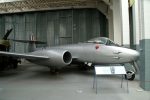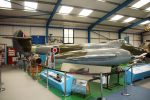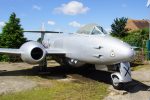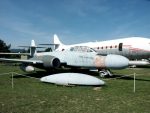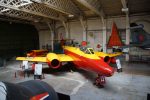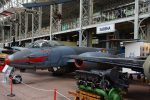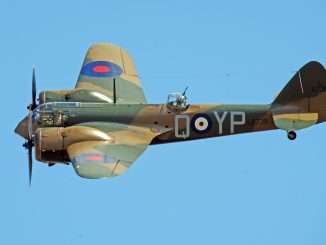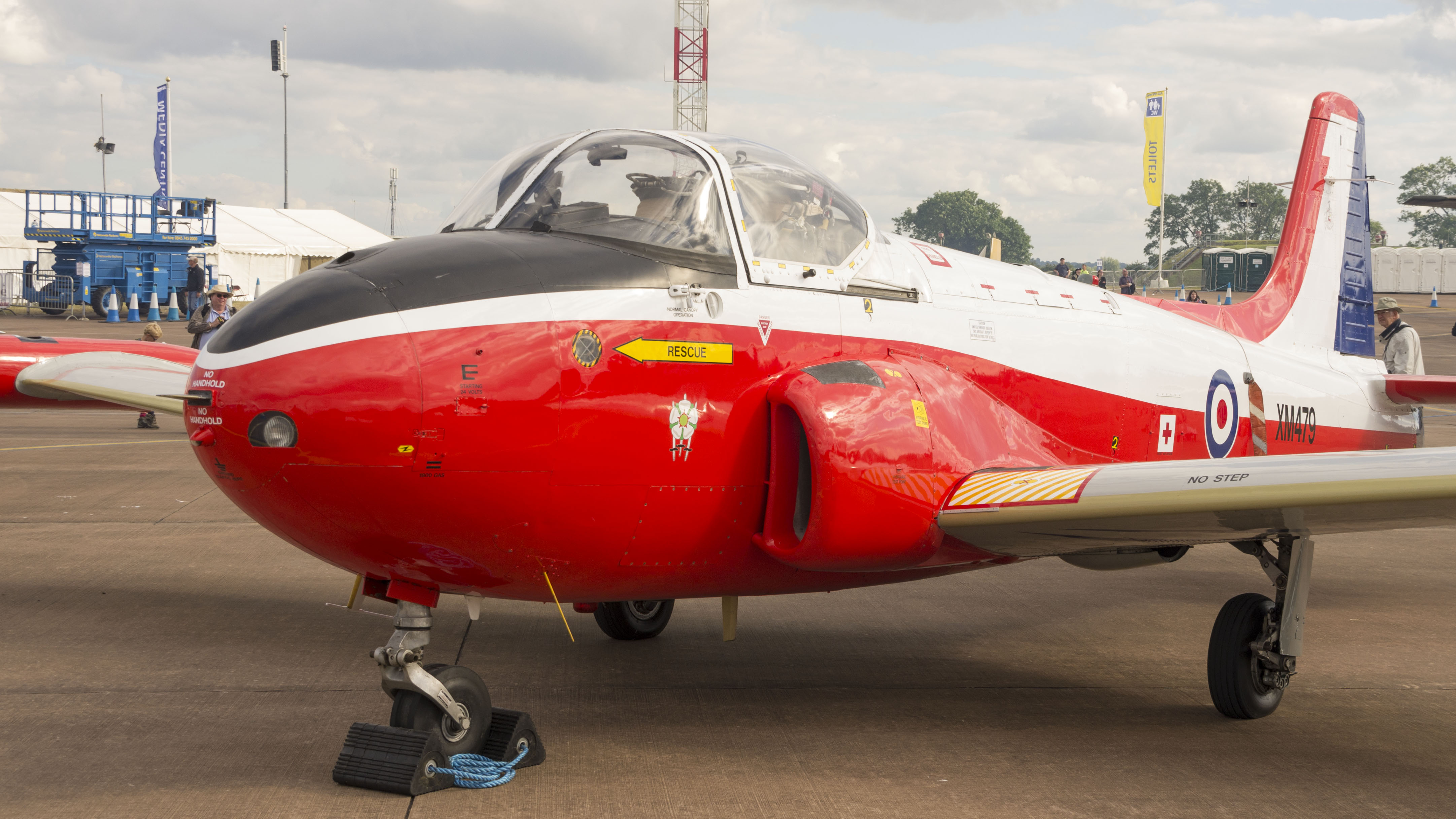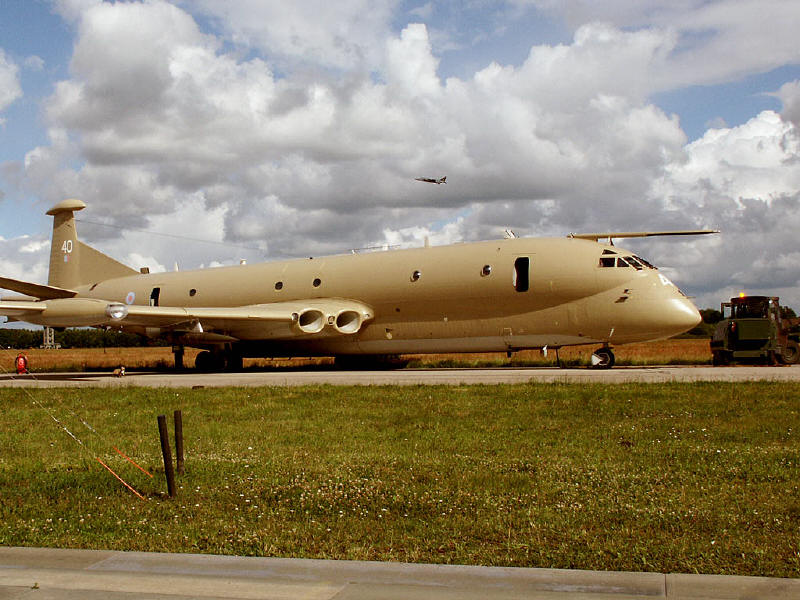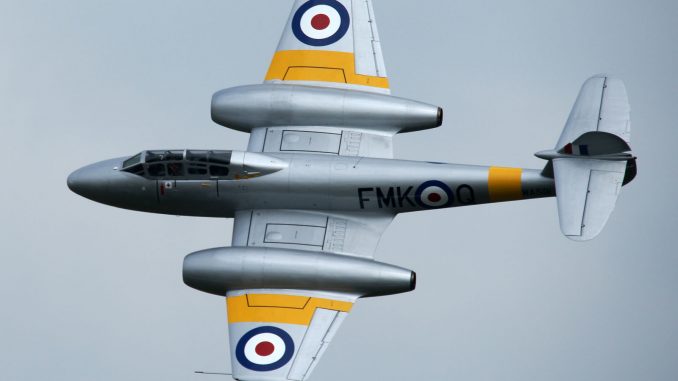
The Gloster Meteor was the first British jet fighter and the Allies’ only jet aircraft to achieve combat operations during the Second World War. The Meteor’s development was heavily reliant on its ground-breaking turbojet engines, pioneered by Frank Whittle and his company, Power Jets Ltd.
| Role | Fighter aircraft |
|---|---|
| National origin | United Kingdom |
| Manufacturer | Gloster Aircraft Company |
| First flight | 5 March 1943 |
| Introduction | 27 July 1944 |
| Retired | 1980s (RAF target tugs) |
| Status | Two in use as testbed aircraft (one with civil registration) |
| Primary users | Royal Air Force Royal Australian Air Force Belgian Air Force Argentine Air Force |
| Produced | 1943–1955 |
| Number built | 3,947 |
Military operators
- Argentine Air Force
- Royal Australian Air Force
- Belgian Air Force
- Biafran Air Force
- Brazilian Air Force
- Royal Canadian Air Force
- Royal Danish Air Force
- Ecuadorian Air Force
- Royal Egyptian Air Force
- French Air Force
- German Air Force
- Israeli Air Force
- Royal Netherlands Air Force
- Dutch Naval Aviation Service
- Royal New Zealand Air Force
- South African Air Force
- Syrian Air Force
- Royal Air Force
- Fleet Air Arm
- United States Army Air Forces tested one aircraft and returned it to UK after tests.
Civilian operators
- Svensk Flygtjänst AB Three Meteor T.7 and four Meteor T.T.20 for target towing between 1955 and 1974.
- DERA Llanbedr
- Martin-Baker Aircraft Company
- Flight Refuelling Ltd (FRL)
- Classic Air Force
Specifications (Meteor F.8)
General characteristics
- Crew: 1
- Length: 44 ft 7 in (13.59 m)
- Wingspan: 37 ft 2 in (11.33 m)
- Height: 13 ft 0 in (3.96 m)
- Wing area: 350 sq ft (33 m2)
- Airfoil: root: EC(12.5)40/0640; tip: EC1040/0640
- Empty weight: 10,684 lb (4,846 kg)
- Gross weight: 15,700 lb (7,121 kg)
- Powerplant: 2 × Rolls-Royce Derwent 8 centrifugal flow turbojet engine, 3,600 lbf (16 kN) thrust each

Performance
- Maximum speed: 600 mph (970 km/h, 520 kn) at 10,000 ft (3,000 m)
- Maximum speed: Mach 0.82
- Range: 600 mi (970 km, 520 nmi)
- Service ceiling: 43,000 ft (13,000 m)
- Rate of climb: 7,000 ft/min (36 m/s)
- Time to altitude: 30,000 ft (9,100 m) in 5 minutes
- Wing loading: 44.9 lb/sq ft (219 kg/m2)
- Thrust/weight: 0.45
Armament
- Guns: 4 × 20 mm Hispano MkV cannons
- Rockets: Provision for up to sixteen “60 lb” 3-inch rockets or eight 5-inch HVAR rockets under outer wings
- Bombs: two 1000 lb (454 kg) bombs
Photos Rob Vogelaar and Marcel van Leeuwen



